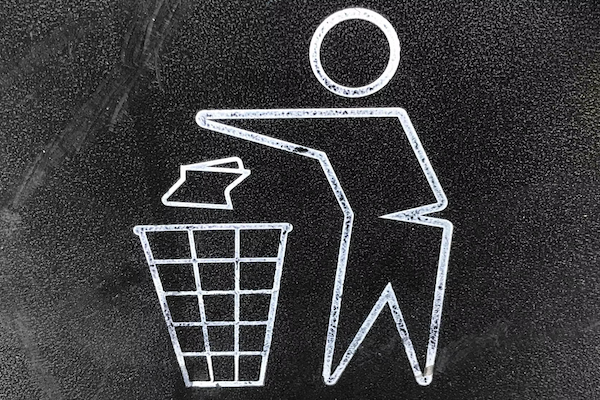
Concerned about profits, supply chains, the environment, or your organization’s public reputation? One surprising way to enhance all those areas is to consider your supply chain, particularly the inefficiencies.
Waste not, want not, as the old adage goes, is a fine, pithy sentiment to be sure. The “waste not” part however has often proven to be a challenge in this fast-paced, increasingly crowded and resource-tapped world.
Perhaps nowhere has this been more demonstrably true than in the manufacturing sector. Let’s talk about why waste is a problem, and how supply chain traceability can reduce it … while saving you money.
Wasting Away
Your supply chain makes a huge impact in your business, and in the world. Consider a few facts and figures from the Food & Beverage Industry:
Around one-third of all food produced (that’s 1.3 billion tonnes of it) is lost or wasted in the supply chain. That rises in North America, where a whopping 40% of food loss or waste is caused by the supply chain. What’s more, The Boston Consultancy Group has reported the amount of supply chain food waste is set to actually increase!
Poverty and hunger could be alleviated by feeding 870 million hungry people if even 1/4 of food wasted was saved. Add to that, it destroys your bottom line.
Depressed yet? But wait, there’s more!
Not only is waste of this magnitude costly on a human and monetary level (to the tune of $1.2 trillion globally per year), it has considerable environmental impacts as well.
Waste through road-based transportation and shipping impact climate change since heavy trucks emit high levels of greenhouse gases, contributing 50% of the NOx emission total for the entire United States, 30% of volatile organic compounds, and 20% of its particulate matter emissions according to the EPA.
No matter your manufacturing industry, it might surprise you to hear that 90% of your ecological footprint comes as a result of your supply chain, which is terrible for the environment, and also bad for your partners, employees and customers trending sustainability concerns.
So, supply chain waste is a serious issue. What can be done about it? Well, an improvement in supply chain management, for one thing. And the good news is, significant improvement in supply chain management is possible with optimal supply chain traceability.
Supply Chain Traceability: One Solution To Supply Chain Waste
Supply chain traceability is the ability for manufacturers to track materials and products from the start of the supply chain to the very end, from source to consumer, and every point in between.
With all the moving parts involved, from supplier to shipper to retailer, supply chain traceability provides greater visibility and control over every element, every process and every potential problem, securing the critical integrity of the supply chain.
An increase in visibility means the ability to recognize clearly all the ways in which manufacturing waste is created across the supply chain - and the first step in eliminating waste is of course, identifying it. Let’s review (a lean manufacturing system, with examples of the “7 Wastes of Lean” (and a sometimes-included 8th), as delineated by Lean Practitioners:
- Transport - moving inventory further or more often than necessary
- Inventory - wasting space and money by storing products in excess of what is needed
- Motion - unnecessary movement of people or materials
- Waiting - inventory sitting idle, ready for the next step in a lagging process
- Overproduction - producing too much of a product, too early, exacerbating inventory, transport and other wastes
- Over-processing - work performed that is not adding value
- Defects - wasting time and resources producing poor quality product only to have to fix it or throw it away and start over
- Human Potential - misused workers whose skills could be better allocated elsewhere
Supply Chain Traceability, Supercharged
The supply chain traceability powered by the Smart Manufacturing of Industry 4.0 illuminates the million and one headaches that could occur in each of the above categories, providing actionable insights that can dramatically reduce waste and streamline the entire manufacturing process.
Every step in your supply chain can be optimized if you just knew what’s going on at each stage. And that wasn’t possible in the past. But it is now.
With the help of artificial intelligence (AI) and Machine Learning (ML) integrated with existing devices like internet of things (IoT) sensors, Smart Manufacturing becomes fully autonomous as real-time data is captured, correlated and contextualized.
Manufacturers now have access to a fully transparent view of each step in the process where waste can occur; predictive and prescriptive analytics deliver early warning alerts about impending trouble and reveal opportunities for improvement, optimizing and truly transforming the supply chain.
Looking for a ready-made solution to waste woes? ThinkiQ’s Transformational Intelligence platform offers unprecedented material traceability and insight into ways to improve yield, quality, safety, sustainability, compliance, and brand confidence. Contact us today to learn more about how this transformational technology can help reduce waste at the source, or you can download our new eBook titled "Advanced Material Traceability Revolutionizes Digital Transformation"


